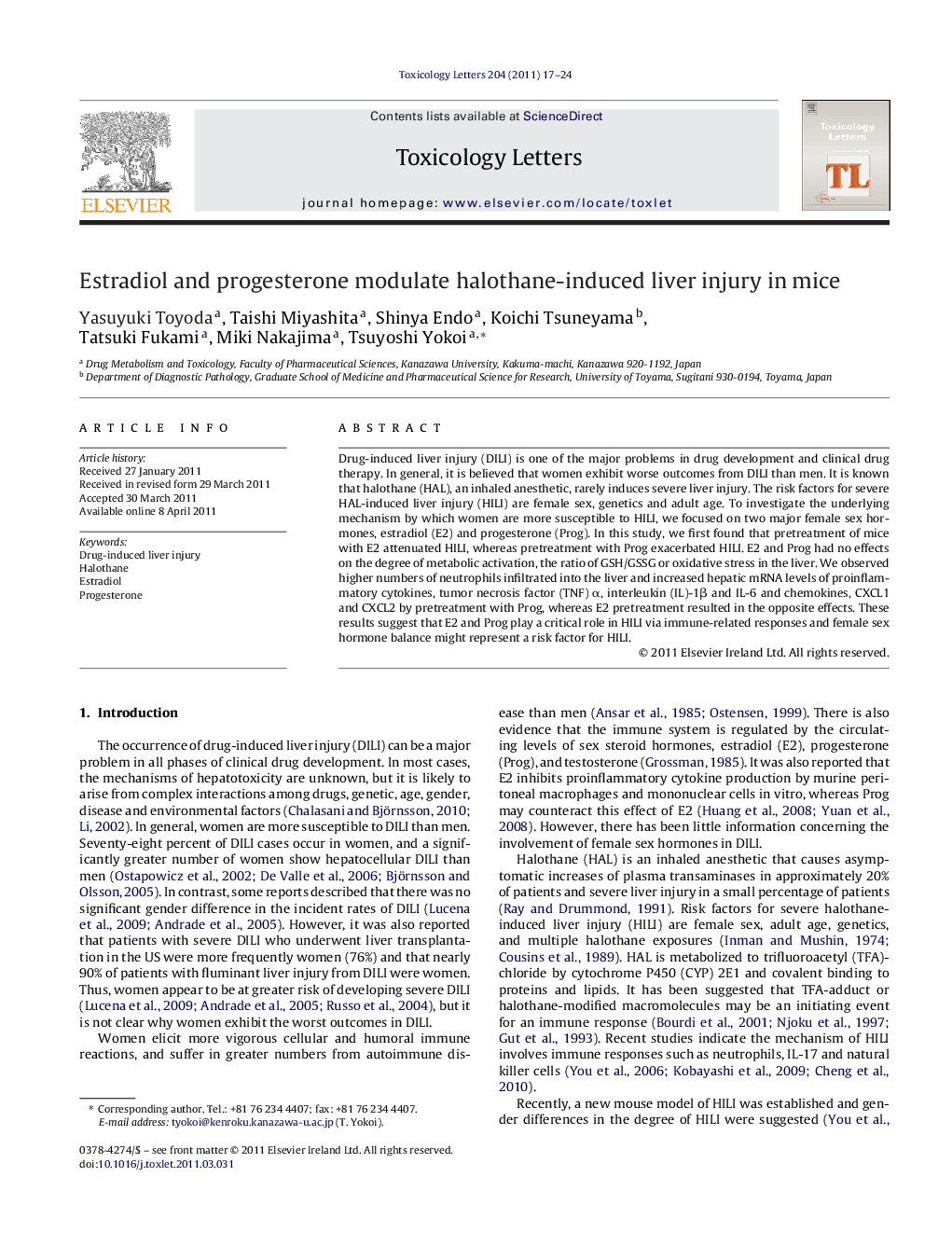| Article ID | Journal | Published Year | Pages | File Type |
|---|---|---|---|---|
| 2600426 | Toxicology Letters | 2011 | 8 Pages |
Drug-induced liver injury (DILI) is one of the major problems in drug development and clinical drug therapy. In general, it is believed that women exhibit worse outcomes from DILI than men. It is known that halothane (HAL), an inhaled anesthetic, rarely induces severe liver injury. The risk factors for severe HAL-induced liver injury (HILI) are female sex, genetics and adult age. To investigate the underlying mechanism by which women are more susceptible to HILI, we focused on two major female sex hormones, estradiol (E2) and progesterone (Prog). In this study, we first found that pretreatment of mice with E2 attenuated HILI, whereas pretreatment with Prog exacerbated HILI. E2 and Prog had no effects on the degree of metabolic activation, the ratio of GSH/GSSG or oxidative stress in the liver. We observed higher numbers of neutrophils infiltrated into the liver and increased hepatic mRNA levels of proinflammatory cytokines, tumor necrosis factor (TNF) α, interleukin (IL)-1β and IL-6 and chemokines, CXCL1 and CXCL2 by pretreatment with Prog, whereas E2 pretreatment resulted in the opposite effects. These results suggest that E2 and Prog play a critical role in HILI via immune-related responses and female sex hormone balance might represent a risk factor for HILI.
► We focused on two female sex hormones estradiol and progesterone. ► Estradiol pretreatment attenuated halothane-induced liver injury in mice. ► Progesterone pretreatment exacerbated halothane-induced liver injury in mice. ► Estradiol and progesterone modulate immune responses after halothane administration.
